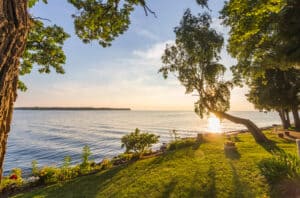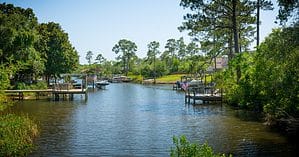If you live in most places in the world, you likely take for granted that your country has an army. And some of those armies are truly humongous. The three largest standing armies in the world are those of China (two million), India (1.46 million), and the United States (1.39 million). But what if your country lacked a permanent standing army, only employing police for internal criminal matters? Would you feel safe? Interestingly, more than 10% of the world’s countries (21 out of 193 UN-recognized) do not have an army. But how do countries without an army defend themselves? We’ve compiled a list along with an explanation of how each country handles its defense needs.
1. Andorra
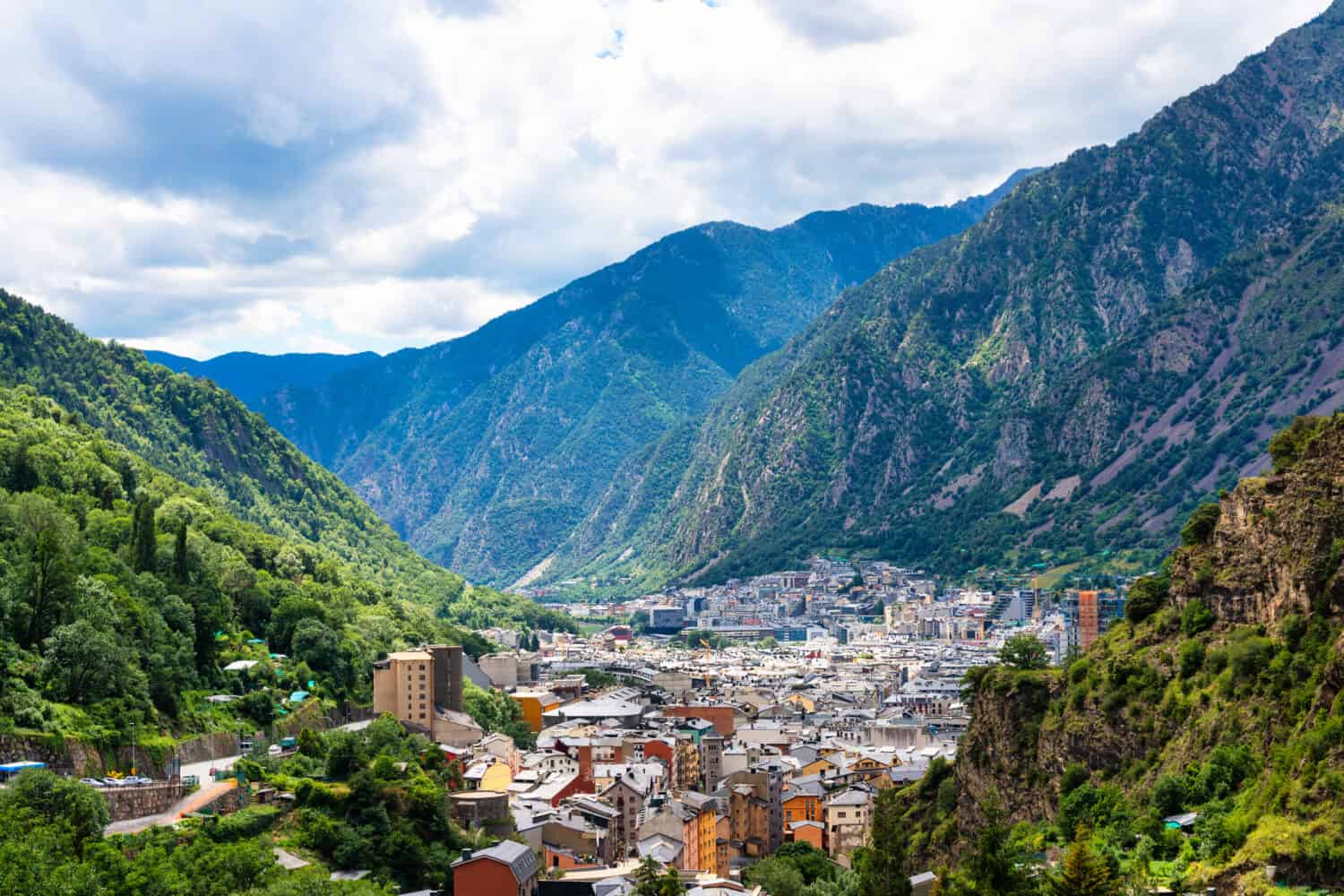
The beautiful and tiny country of Andorra is protected by France and Spain.
©Armando Oliveira/Shutterstock.com
Andorra is a small landlocked country in the Pyrenees Mountains, surrounded by France and Spain, which have both signed treaties to protect the micro nation. The country’s police have a special forces unit for counter-terrorism activities.
2. Costa Rica
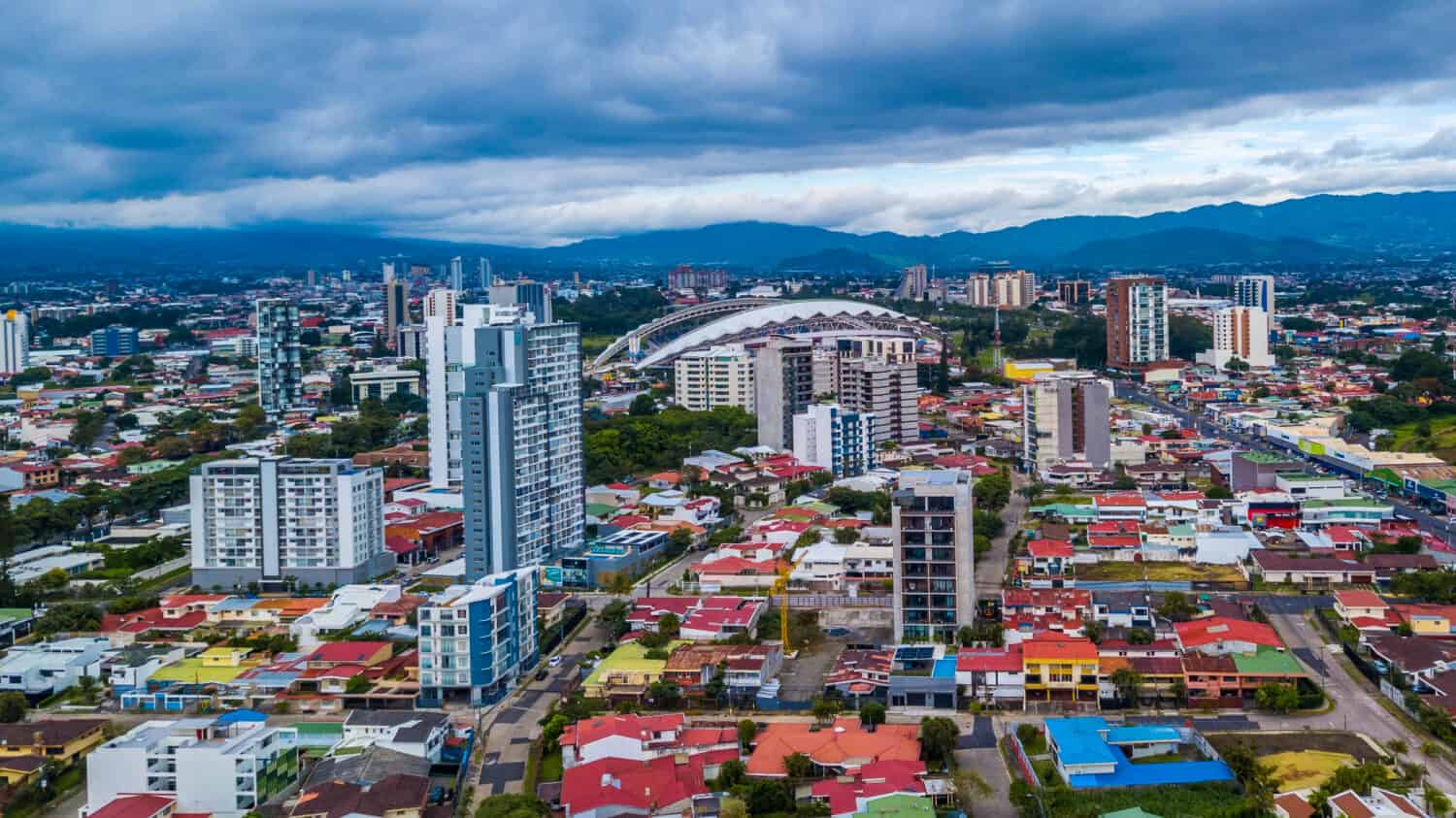
Despite being a relatively large country, Costa Rica lacks an army.
©Gianfranco Vivi/Shutterstock.com
After a civil war in the mid 1900s, Costa Rica constitutionally abolished its military in 1949. The Public Force is the name of the country’s police force. They provide internal security and operate some unarmed aircraft for surveillance purposes.
3. Dominica
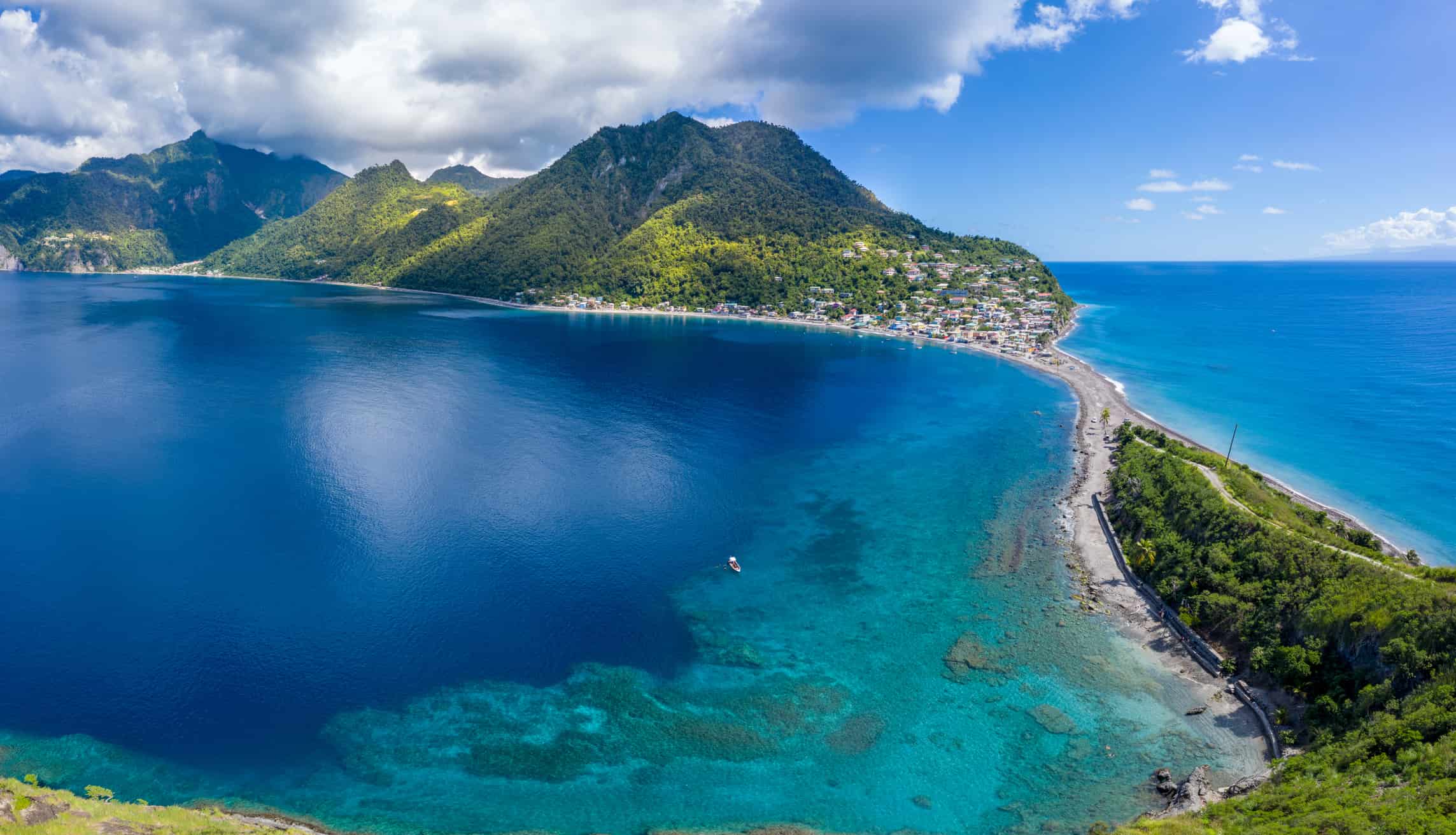
The gorgeous country of Dominica is located in the Caribbean Sea.
©Derek Galon/iStock via Getty Images
One of the most exotic countries without an army is Dominica, which abolished its standing army in 1981. The police force operates a coast guard and a special forces unit.
4. Grenada
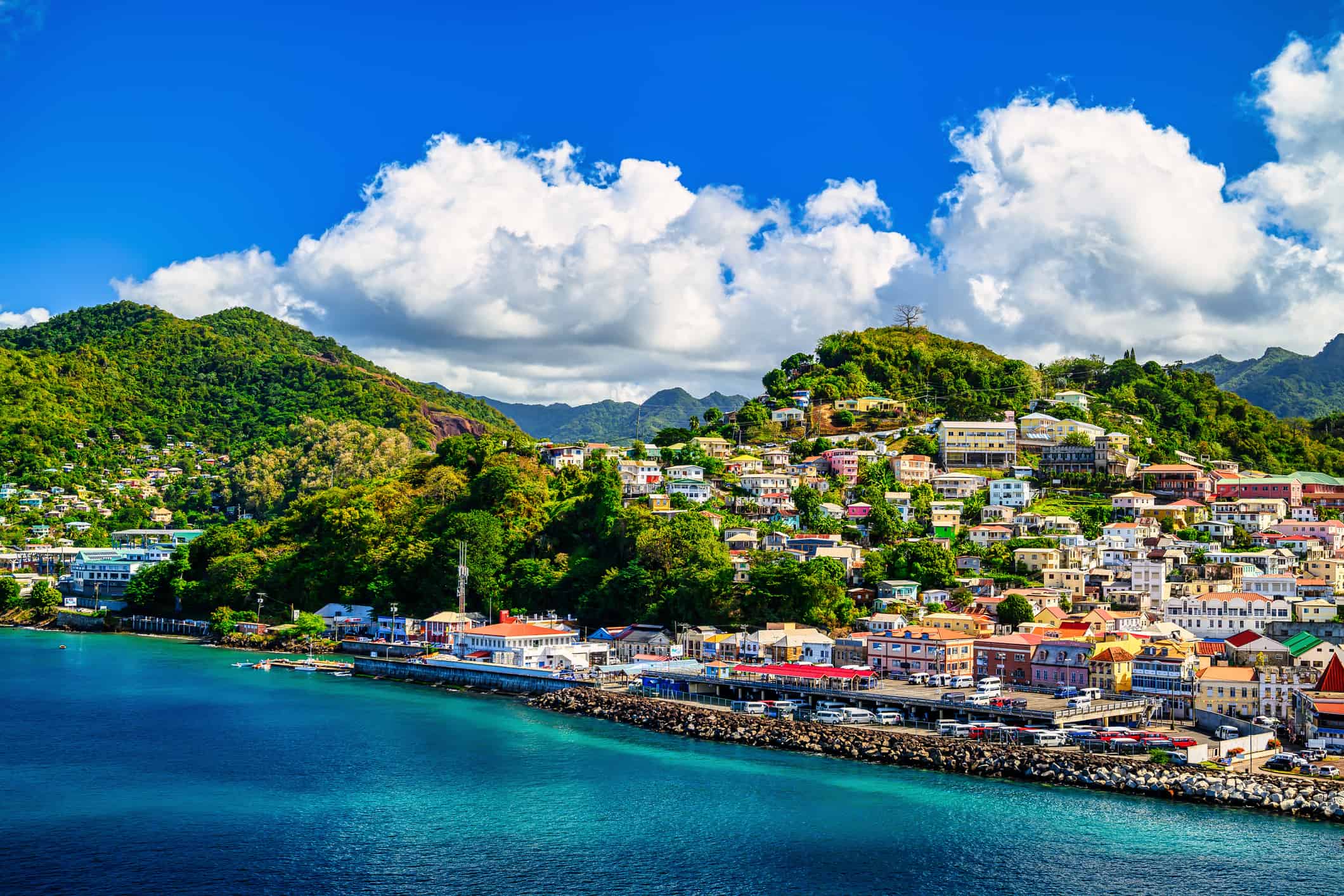
Grenada is another Caribbean country that lacks a formal defense system.
©Andreas Voelkel/iStock via Getty Images
The United States invaded Grenada in 1983 to overthrow a Marxist government. Grenada’s army was disbanded the same year and since then the island country has used police for its internal security. Grenada participates in the Regional Security System, in which several island nations in the Caribbean, backed by the U.S. and Canada, have pledged to assist one another in the event of an attack.
5. Iceland
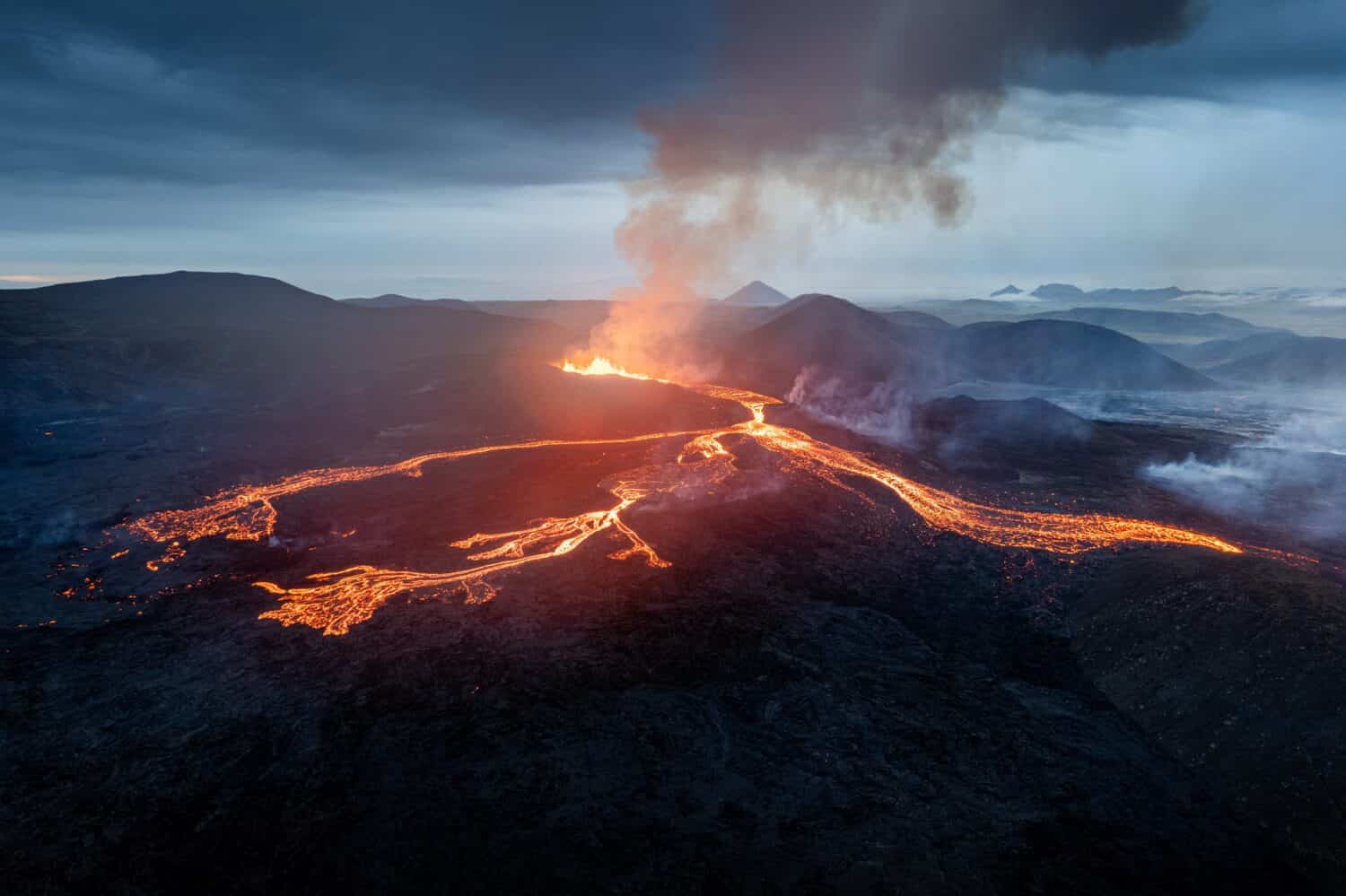
Iceland is unique for many reasons, including its volcanoes and barren landscape.
©Wirestock Creators/Shutterstock.com
Since 1869, Iceland has been a country without an army. Located just south of the Arctic Circle, Iceland has generally been too remote to be threatened by stronger enemies. During the Cold War, however, it became important as a forward base for the United States to detect Soviet naval movements and missile launches. Iceland is a member of NATO and the U.S. had forces based there from 1951-2006. Iceland has a Crisis Response Unit, a Coast Guard, and a police force to handle internal emergencies.
6. Kiribati
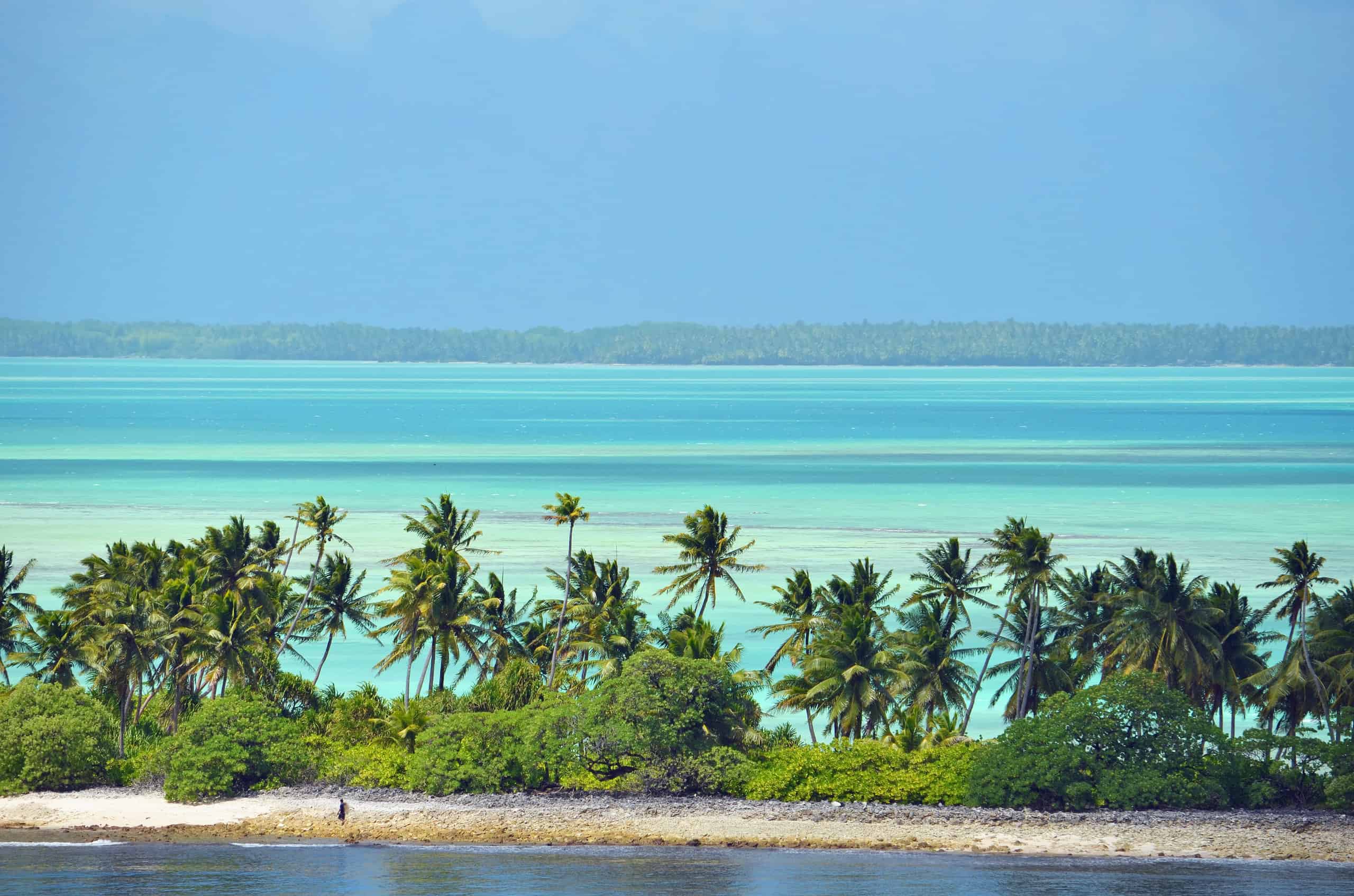
New Zealand looks after the small country of Kiribati.
©iStock.com/EvaKaufman
Kiribati is a Central Pacific country consisting of 33 islands and atolls widely scattered over 1.3 million square miles of ocean. It has a police force with small arms and one patrol boat. Australia and New Zealand have promised to assist the country if it has a national defense emergency.
7. Liechtenstein
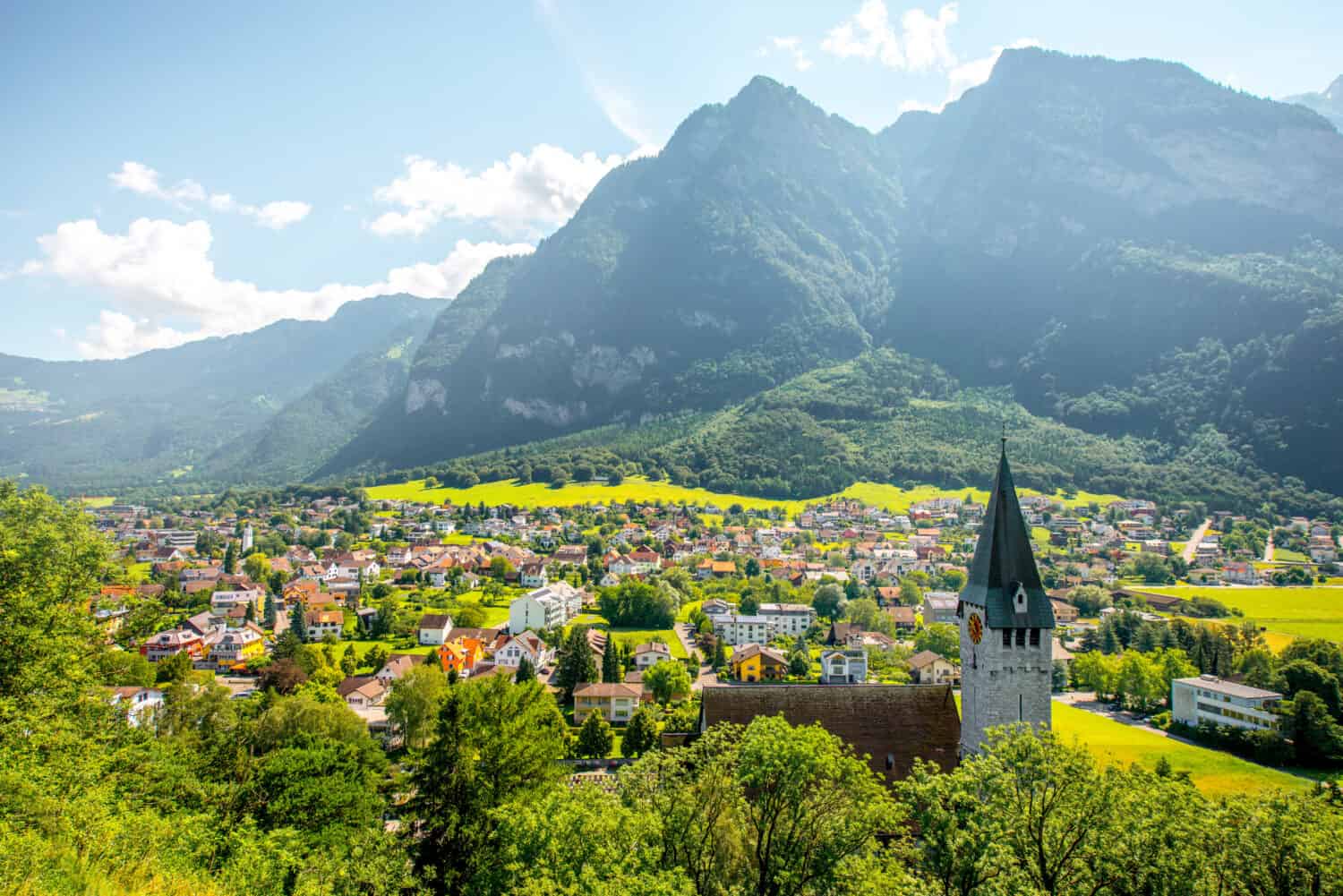
As one of Europe’s smallest countries, lovely Liechtenstein lacks an army.
©RossHelen/Shutterstock.com
Liechtenstein has not been at war since 1866 and abolished its army two years later to save money. By law, they only permit a national army during wartime. The country has a police force for internal security. Switzerland and Austria, which surround the country, provide for its international defense.
8. Mauritius
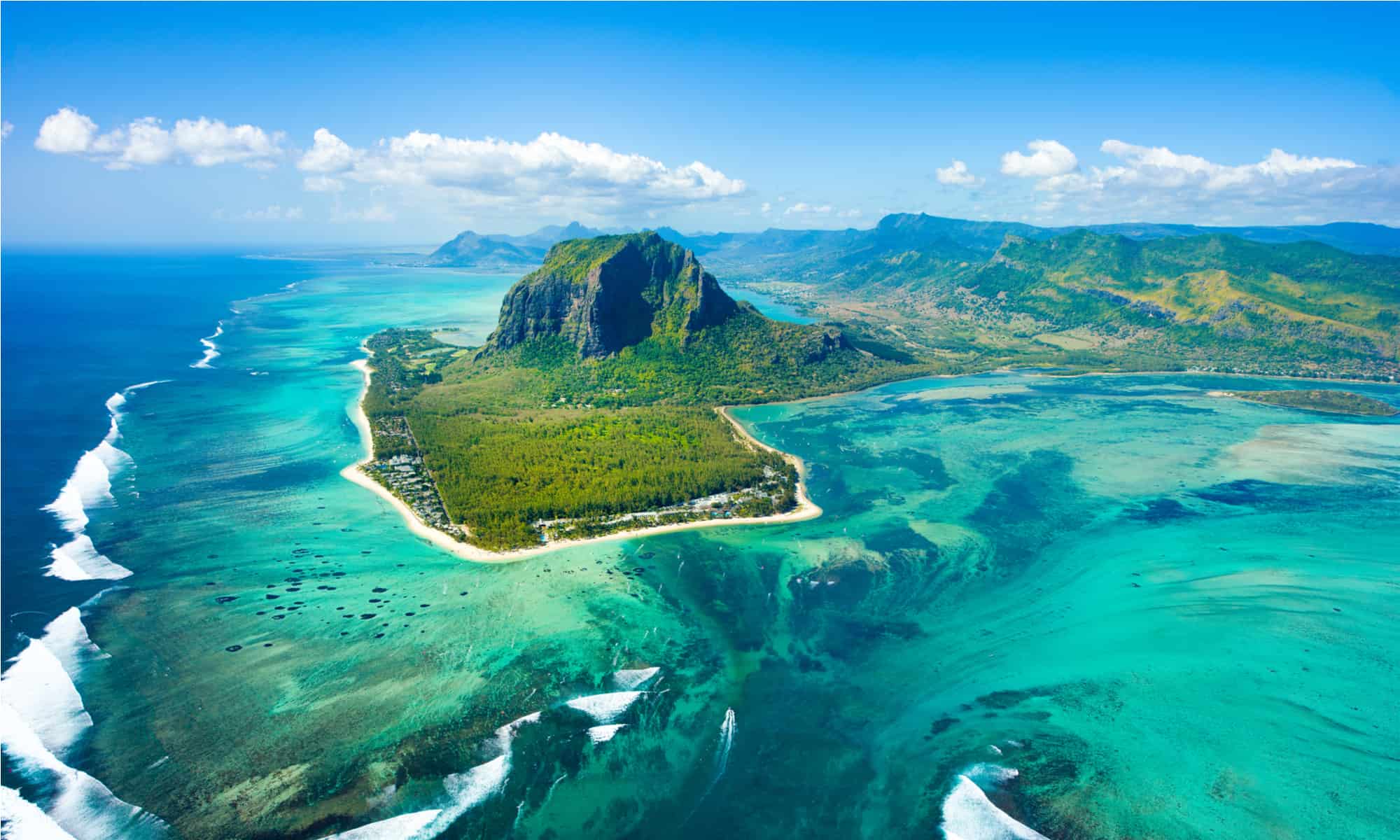
The beautiful island of Mauritius is extremely close to Africa.
©Myroslava Bozhko/Shutterstock.com
Mauritius is an island country off the coast of East Africa. It has never had its own army, but it does have a robust internal security force of police and a coast guard consisting of about 20,000 personnel. In 2023 the media revealed that India is building an air base in the country. Mauritius claims the island of Diego Garcia, where the United States leases a highly strategic base. Mauritius has offered to extend a 99-year lease to the U.S. if the island is recognized as their legal territory. Ultimately, Mauritius is aligned with India and the U.S., two countries that are working to limit Chinese influence in the region.
9. Marshall Islands
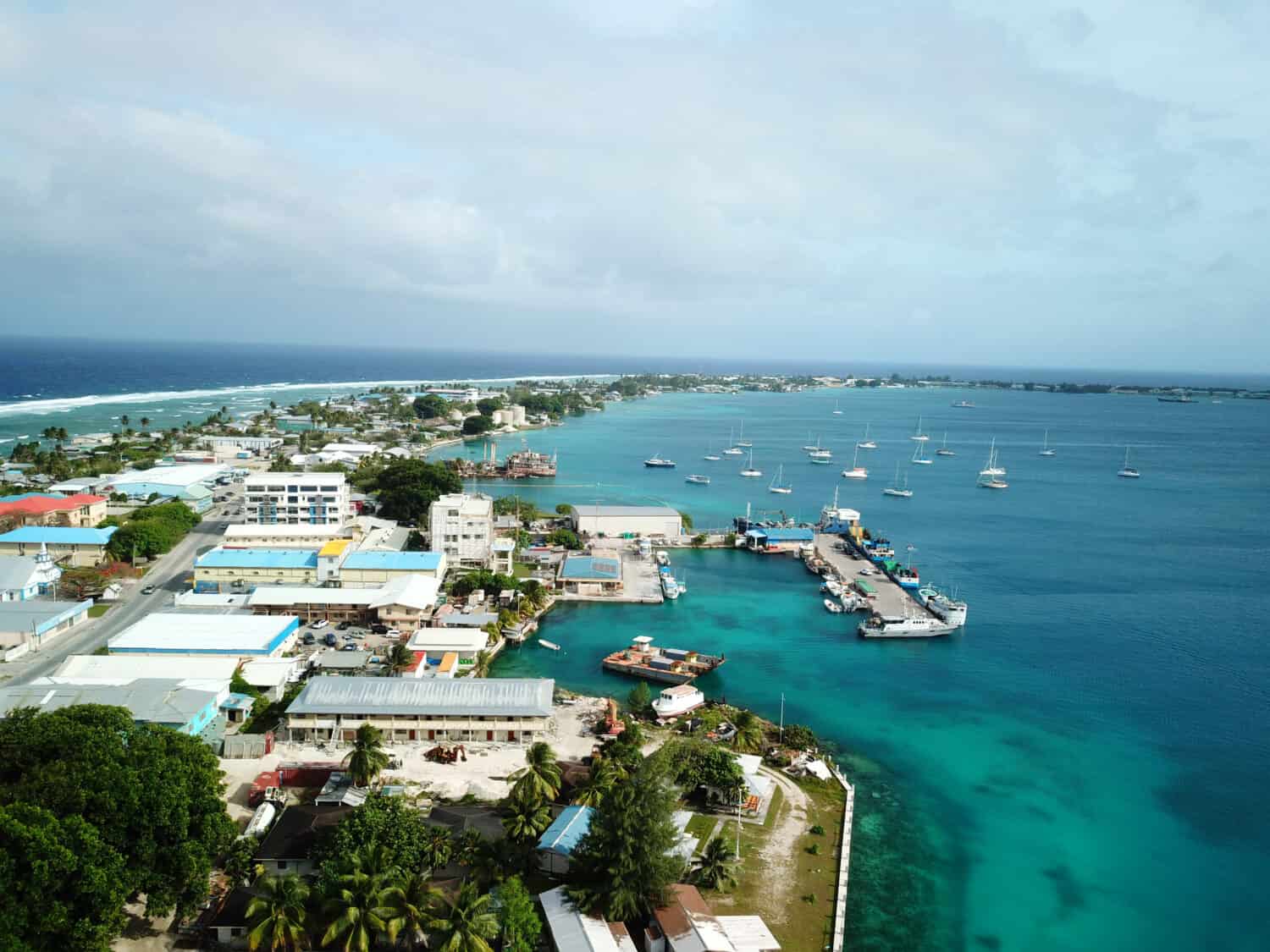
These islands never had an army at any time during their existence.
©KKKvintage/Shutterstock.com
The Marshall Islands has never had its own military. The police, armed with small weapons, provide internal security, and they have one patrol boat. The United States agreed to defend the country under the terms of a Compact of Free Association.
10. Micronesia
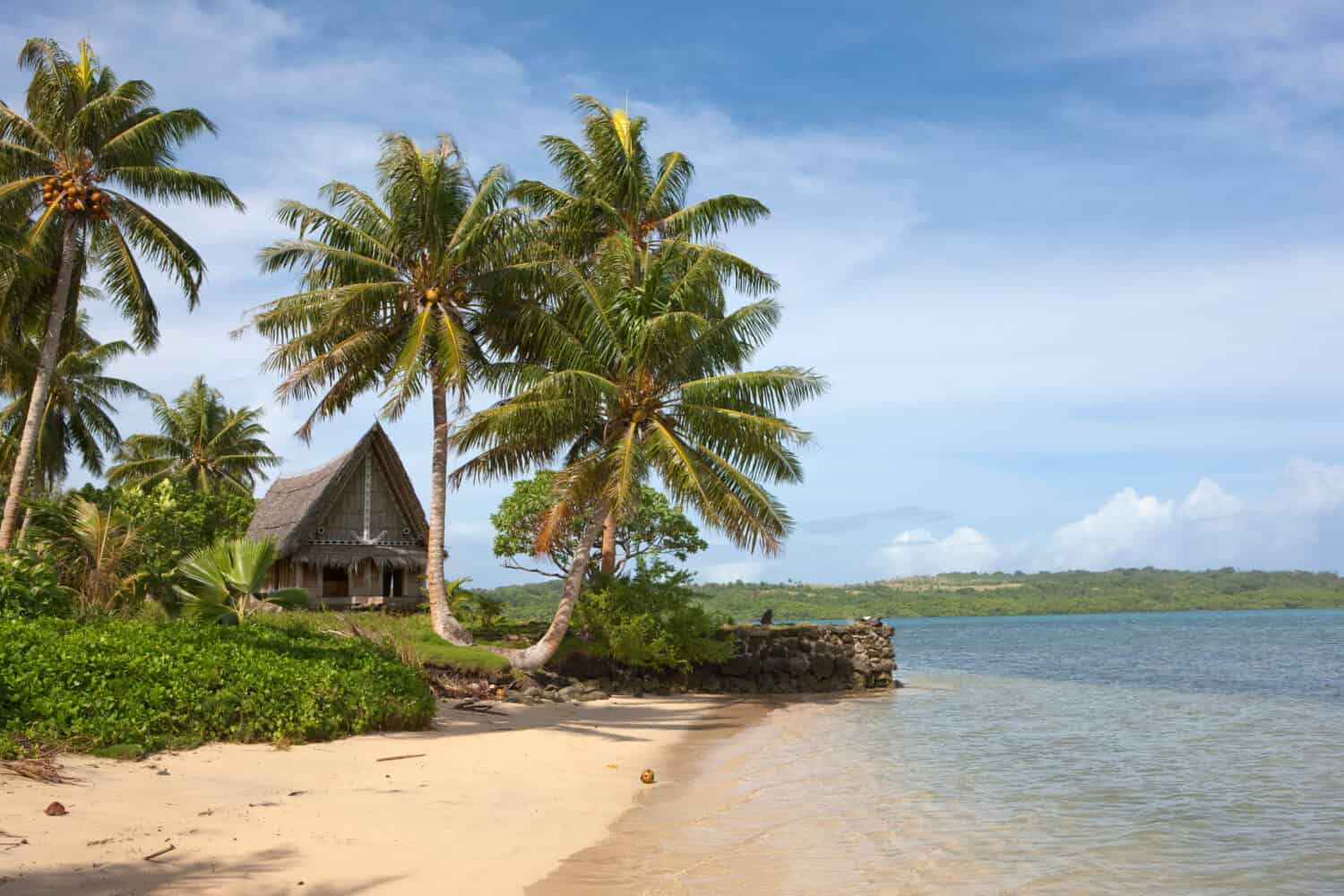
The U.S. is ultimately responsible for keeping the Marshall Islands safe.
©Iurii Kazakov/Shutterstock.com
Like the Marshall Islands, Micronesia has entrusted its defense to the United States under the terms of a Compact of Free Association. The police take care of internal security, and the country has three patrol boats.
11. Monaco
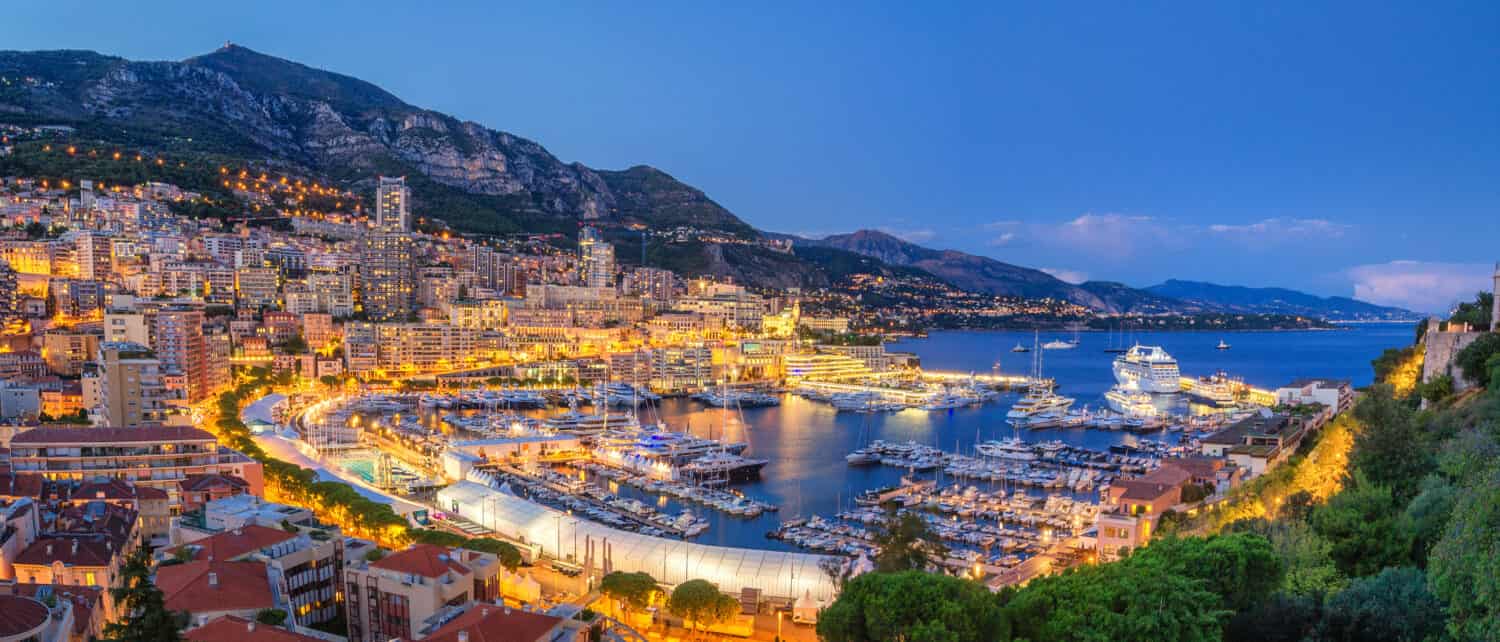
The tiny nation of Monaco sparkles at night, reflecting its wealth and glamour.
©tichr/Shutterstock.com
Monaco is a wealthy micronation on the Riviera, surrounded on three sides by France, and positioned on the Mediterranean Sea. It gave up its army in the 1600s and entrusted its defense to France. It has its own police, a security detail to protect the monarch and other government officials, and a unit for civil defense and firefighting.
12. Nauru
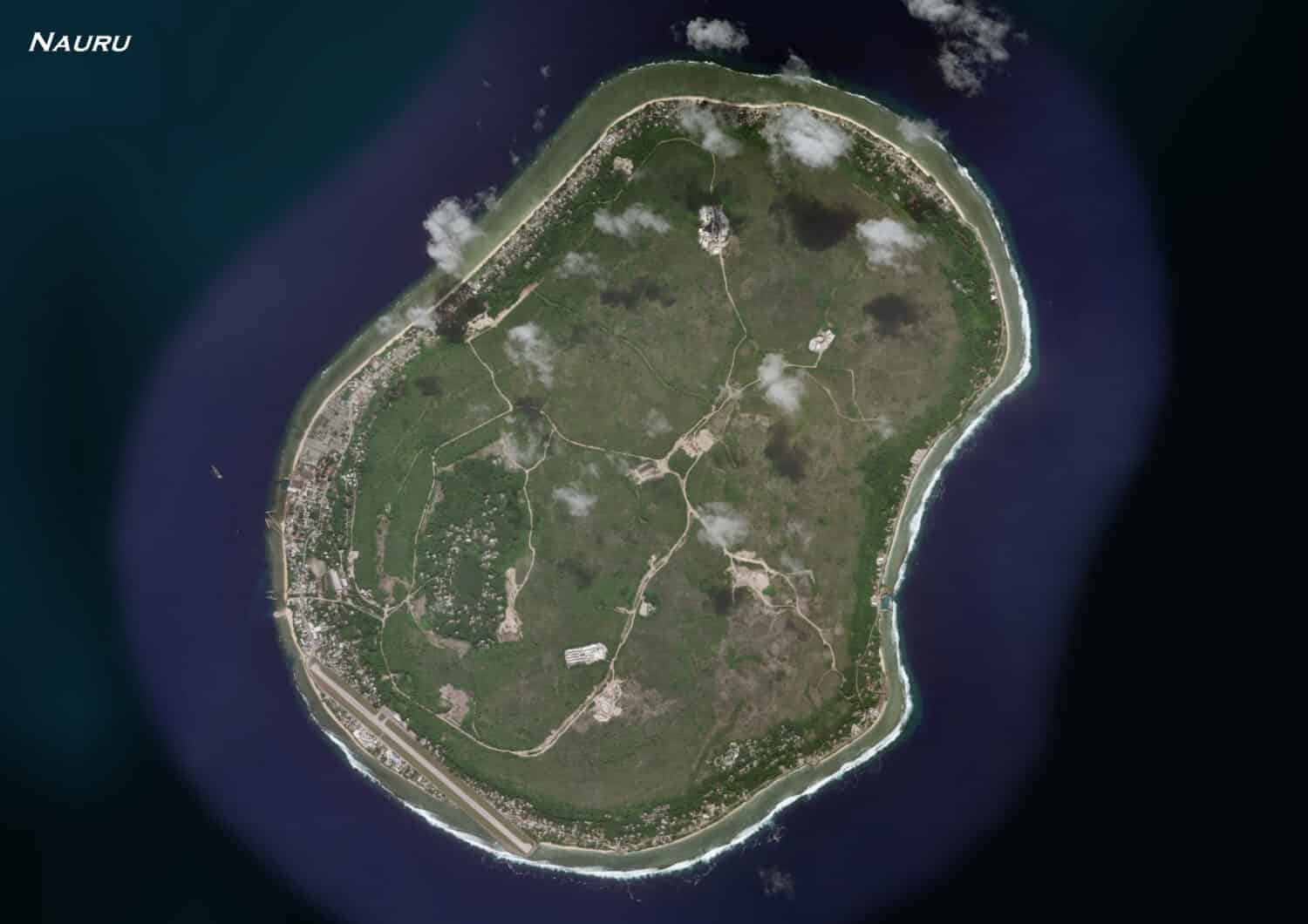
This Pacific country is rarely visited.
©yutthana-landscape/Shutterstock.com
Nauru is a tiny Pacific country consisting of only one island. Australia has used Nauru as a detention facility for processing immigrants and has pledged to provide international defense for the island. Nauru maintains a relatively large police force to handle internal security.
13. Palau
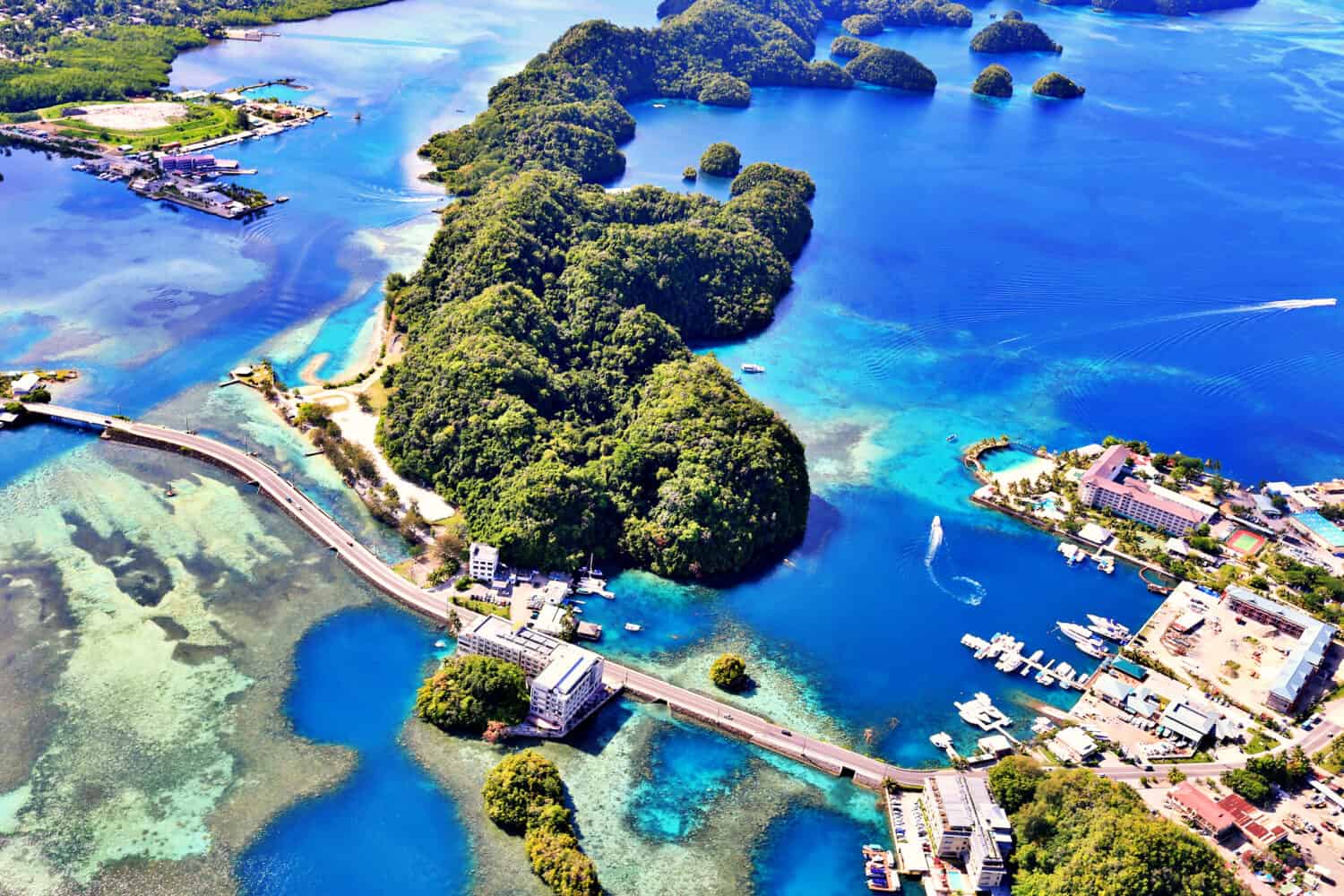
Visitors to Palau can rest assured they are in safe hands, as the U.S. oversees defense.
©Naima Niemand/Shutterstock.com
The United States defends Palau under a Compact of Free Association. Palau’s police have small arms and operate two patrol boats for maritime security.
14. Panama
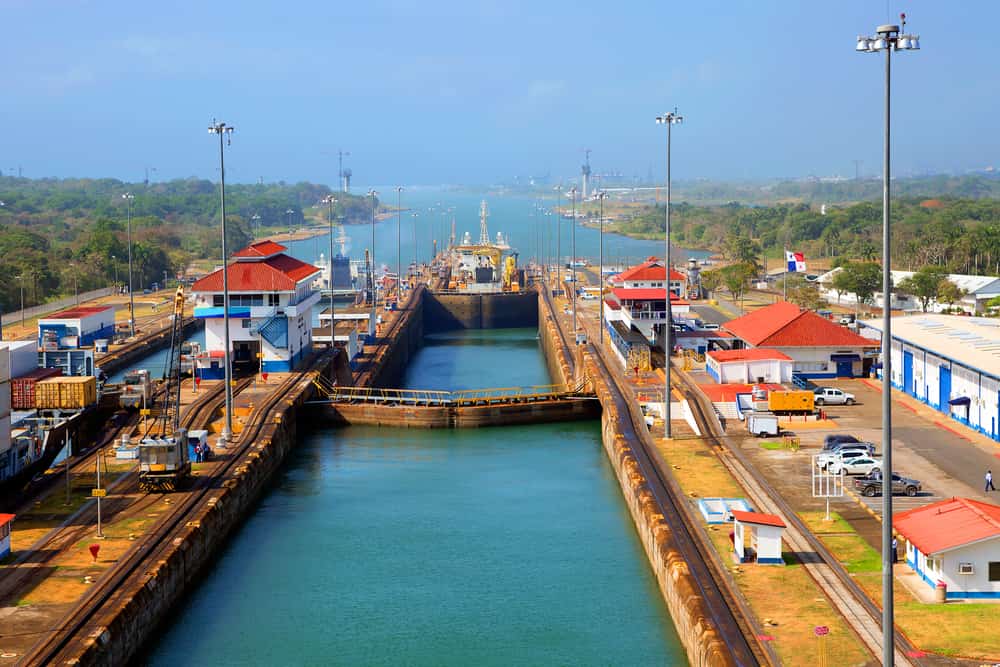
Panama is famous for its canal, pictured here.
©Galina Savina/Shutterstock.com
Like Grenada, Panama abolished its army after being invaded by the United States. In 1989, American military intervention removed General Manuel Noriega from leadership and restored democratic government. Now, internal security services are provided by the police, border service, aeronaval service, and an institutional protective force. In the event of a major security threat that Panama could not handle, it is safe to say the United States would intervene to safeguard the Canal.
15. St. Lucia
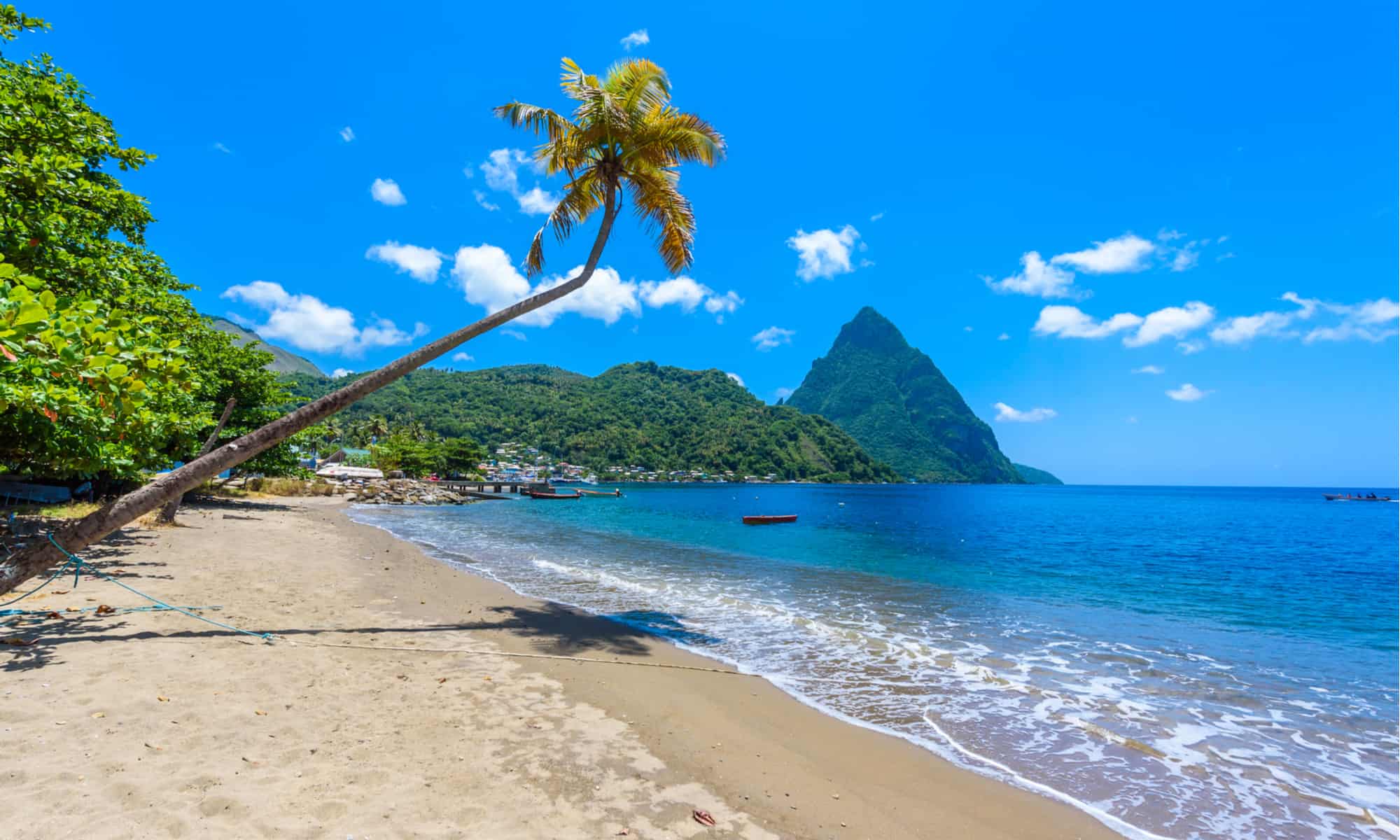
This mountainous country is often called the most beautiful island in the Caribbean.
©Simon Dannhauer/Shutterstock.com
St. Lucia is a signatory to the Regional Security System with other Caribbean islands for international defense. Ultimately, the United States and Canada are the guarantors of defense and stability in the region. St. Lucia’s police manage two small paramilitary forces: the Special Service Unit and the Coast Guard.
16. St. Vincent and the Grenadines
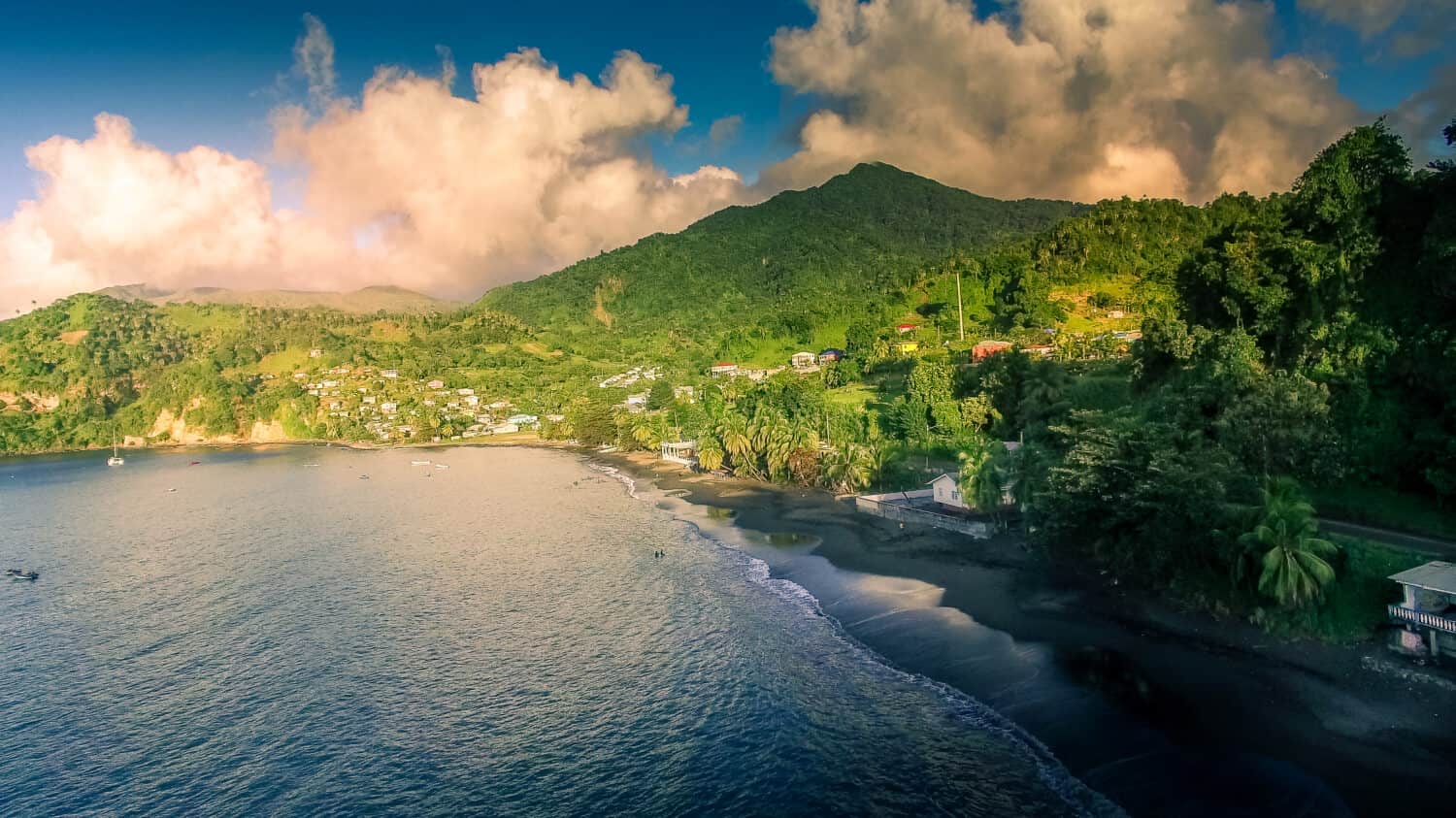
St. Vincent and the Grenadines is one of many Caribbean nations without an army.
©Larwin/Shutterstock.com
Like St. Lucia, St. Vincent and the Grenadines is a member of the Regional Security System in the Caribbean Sea. The police operate a Special Service Unit and the Coast Guard for internal security in and around the islands.
17. Samoa
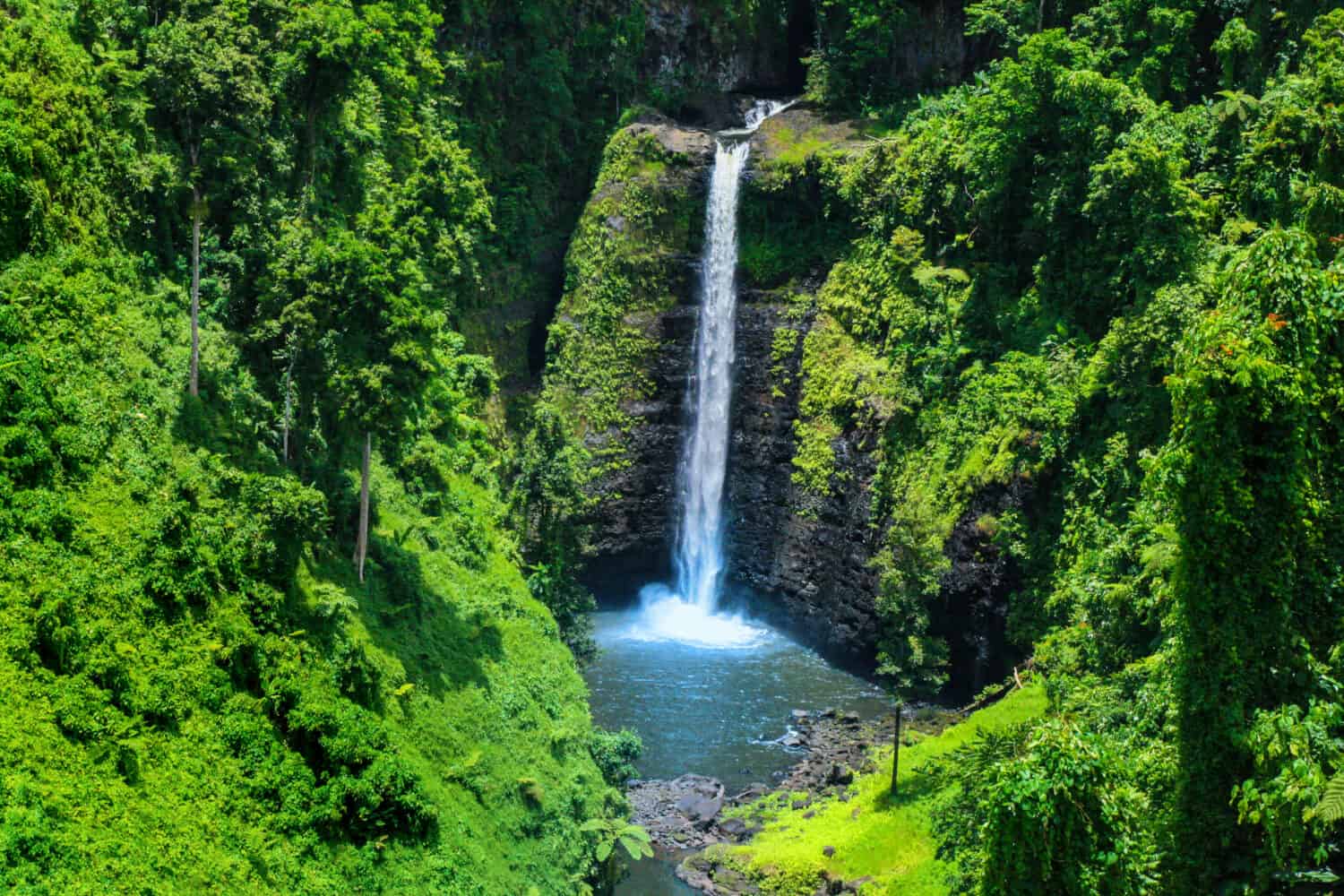
This small Pacific nation is home to lovely waterfalls.
©Radoslav Cajkovic/Shutterstock.com
Samoa has never had a military. They have a small police force and a Maritime Surveillance Unit with small arms and a patrol boat. Samoa has had a Treaty of Friendship with New Zealand since 1962. One of the terms of the treaty is that New Zealand will defend Samoa in the event of an emergency.
18. Solomon Islands
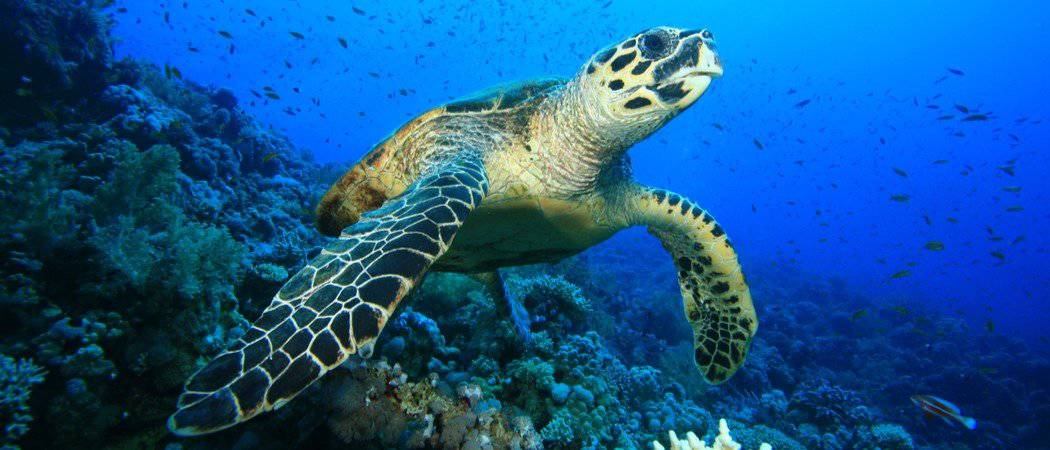
Conflict in the Soloman Islands was rampant in the early 21st century.
©Rich Carey/Shutterstock.com
The Solomon Islands were a site of fierce fighting between the Allies and the Japanese in World War II. After the war, the Solomons disbanded their military forces. Today they have a large police force, a Maritime Surveillance Unit, and two patrol boats. These forces proved to be insufficient when ethnic fighting broke out in the early 21st century, leading to intervention by neighboring countries in 2003. They continued to assist the islands until 2017.
19. Tuvalu
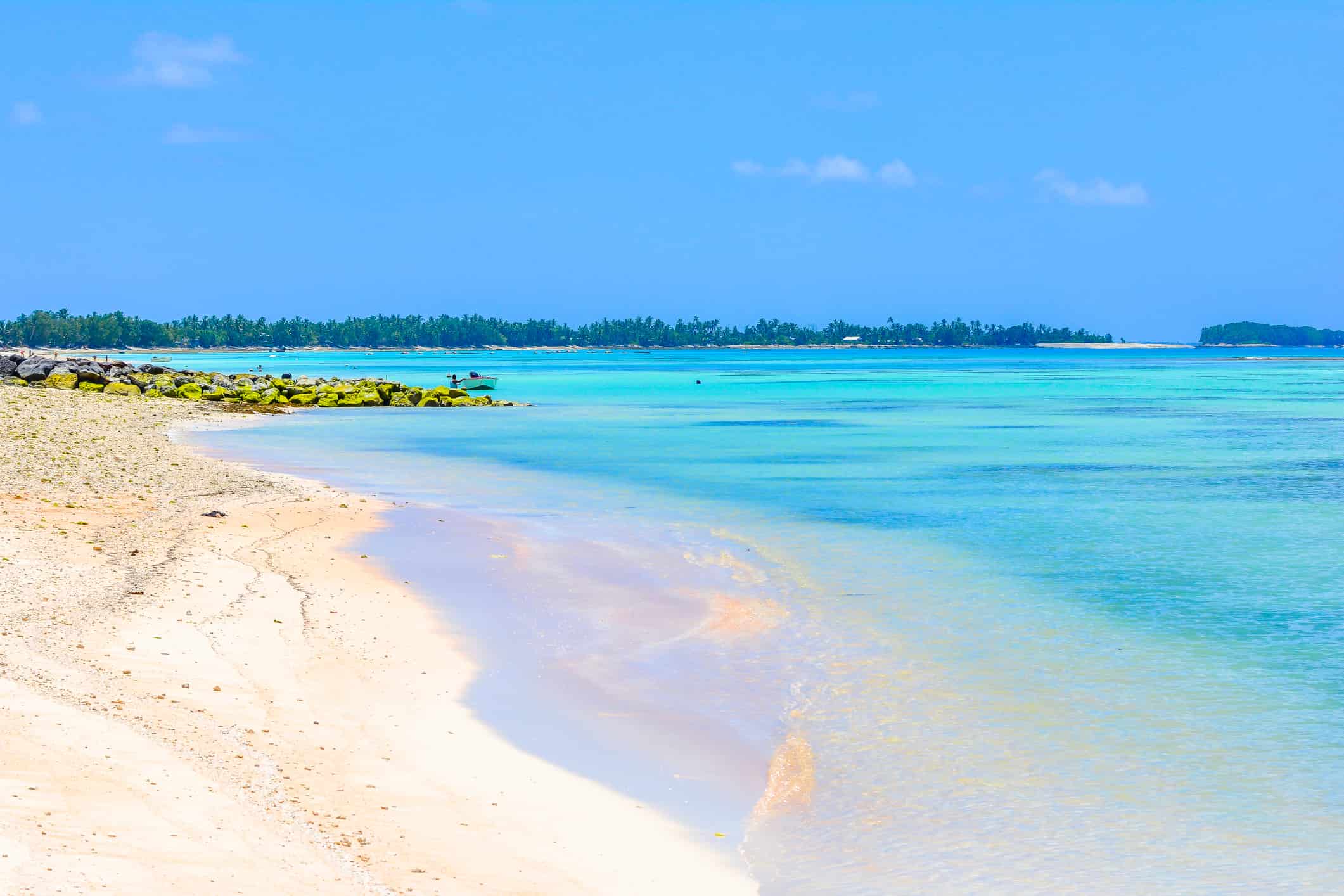
Australia looks after the nearby island of Tuvalu.
©mbrand85/iStock via Getty Images
Tuvalu has a small police force, a Maritime Surveillance Unit, and a patrol boat to manage its internal security and keep an eye on the surrounding waters. The country has never had its own military. As recently as 2023, Australia signed a pact with Tuvalu to provide for its defense.
20. Vanuatu
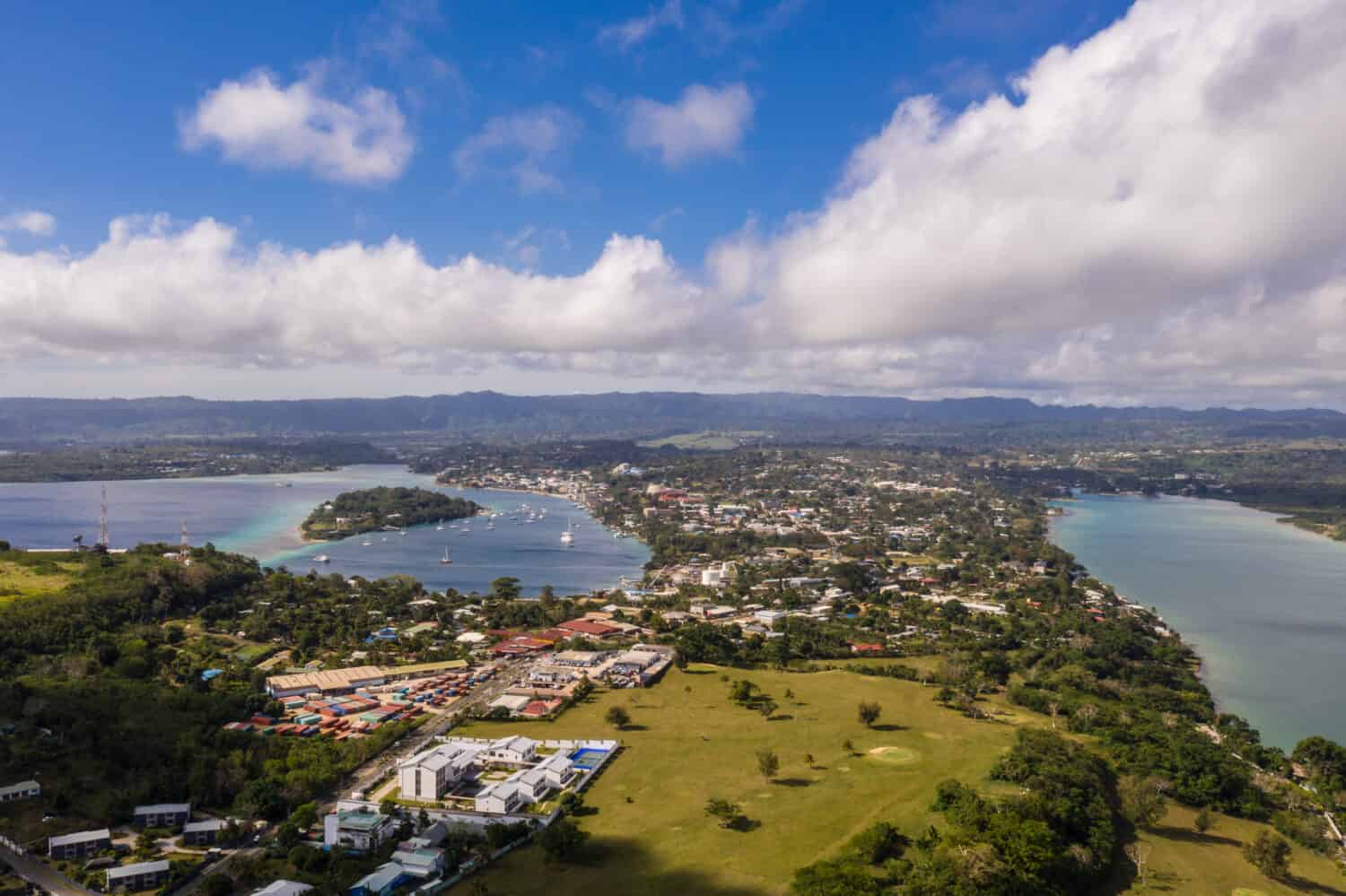
Vanuatu is an interesting Pacific country with an interesting name.
©AsiaTravel/Shutterstock.com
An island country, Vanuatu is located in a region of the Western Pacific that is not a major area of international conflict. Although it has no army, its police force does manage a paramilitary force for internal security.
21. Vatican City
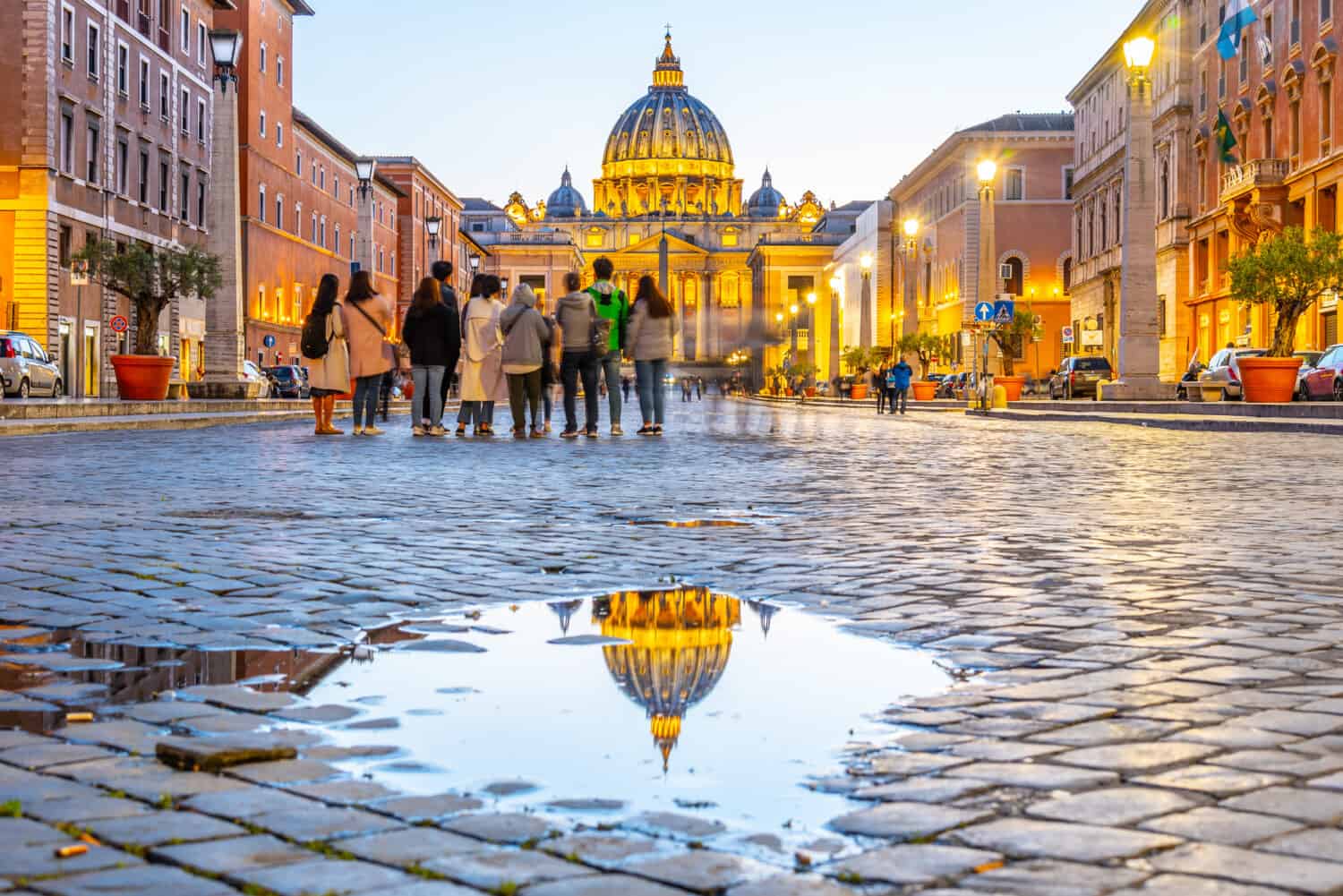
Vatican City is everyone’s favorite smallest country!
©Pyty/Shutterstock.com
Although Vatican City has only 0.17 square miles and is surrounded by the city of Rome, it is recognized as a fully independent nation. As the headquarters of the Roman Catholic Church and the home of the Pope, it has great international influence. Special Swiss military units help guard the country. The Vatican is officially neutral, so it cannot sign a defense treaty with Italy. However, Italy would certainly come to the aid of this tiniest country in the middle of its own capital city.
The photo featured at the top of this post is © iStock.com/Puttachat Kumkrong
Thank you for reading! Have some feedback for us? Contact the AZ Animals editorial team.




